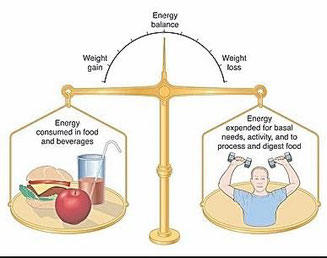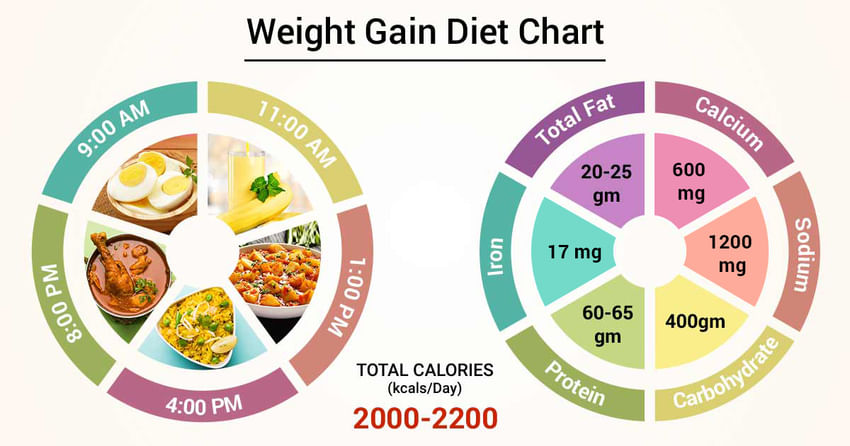The Basics of Weight Gain: Energy Balance
To understand how many excess calories are required to gain a pound, it is essential to first grasp the concept of energy balance. Energy balance is the relationship between the calories you consume and the calories you expend. A positive energy balance occurs when you consume more calories than you burn, leading to weight gain over time. Conversely, a negative energy balance, in which you expend more calories than you consume, results in weight loss.
For those looking to gain weight in a controlled and healthy manner, understanding this energy balance relationship is crucial. By deliberately creating a positive energy balance, you can ensure that the excess calories you consume are directed towards muscle growth and strength gains rather than excess body fat. Achieving this balance requires careful consideration of your daily caloric intake and energy expenditure, which we will explore in the following sections.
Caloric Surplus and Weight Gain: A Tight Connection
A caloric surplus is the cornerstone of weight gain, with the general guideline suggesting that a surplus of 3,500 calories is needed to gain one pound. However, it is essential to remember that individual factors, such as metabolism, body composition, and activity level, can significantly impact this estimate.
First, consider metabolism, which is the process by which your body converts food into energy. Individuals with faster metabolisms may require a larger caloric surplus to gain weight, as their bodies burn calories more efficiently. On the other hand, those with slower metabolisms might achieve weight gain with a smaller caloric surplus.
Body composition also plays a role in determining the number of excess calories required for weight gain. Muscle is metabolically active tissue, meaning that individuals with a higher muscle mass may need more calories to maintain and gain weight compared to those with a higher body fat percentage.
Lastly, physical activity level significantly influences the caloric surplus needed for weight gain. Those who lead sedentary lifestyles will typically require fewer excess calories to gain weight than individuals who engage in regular, intense exercise. Therefore, it is crucial to take these factors into account when estimating the number of excess calories required to gain a pound.
How Many Excess Calories Are Needed to Gain a Pound? A Closer Look
While the general guideline suggests that a surplus of 3,500 calories is required to gain one pound, individual factors such as metabolism, body composition, and physical activity level can significantly impact the number of excess calories needed for weight gain. Let’s delve deeper into these factors.
First, consider metabolic rate, which varies from person to person. Those with faster metabolisms may require a larger caloric surplus to gain weight, as their bodies burn calories more efficiently. Conversely, those with slower metabolisms might achieve weight gain with a smaller caloric surplus.
Body composition also plays a crucial role in determining the number of excess calories needed for weight gain. Muscle is metabolically active tissue, meaning that individuals with a higher muscle mass may need more calories to maintain and gain weight compared to those with a higher body fat percentage. Thus, individuals with a lower body fat percentage and higher muscle mass might need a more considerable caloric surplus to gain weight.
Lastly, physical activity level significantly influences the caloric surplus needed for weight gain. Those who lead sedentary lifestyles will typically require fewer excess calories to gain weight than individuals who engage in regular, intense exercise. Therefore, it is essential to account for one’s activity level when estimating the number of excess calories required to gain a pound.
In summary, understanding the impact of metabolic rate, body composition, and physical activity level on the number of excess calories needed for weight gain is crucial. By taking these factors into account, individuals can create a more personalized and effective weight gain plan.
Practical Applications: Calculating Your Daily Caloric Surplus
Now that you understand the connection between caloric surplus and weight gain, let’s explore how to calculate your daily caloric surplus for optimal weight gain. The first step is to determine your basal metabolic rate (BMR), which is the number of calories your body needs to maintain its basic functions at rest. You can use online calculators or formulas such as the Mifflin-St Jeor equation to estimate your BMR.
Next, calculate your total daily energy expenditure (TDEE) by multiplying your BMR by an activity factor. The activity factor accounts for your daily physical activity, ranging from sedentary (1.2) to extremely active (1.9). Once you have calculated your TDEE, you can create a caloric surplus to support weight gain.
To gain weight at a healthy rate, aim to consume an additional 250 to 500 calories per day on top of your TDEE. This caloric surplus should provide a gradual and controlled weight gain of approximately 0.25 to 0.5 pounds per week. Keep in mind that individual factors, such as metabolism, body composition, and activity level, may affect the actual number of excess calories required for weight gain.
For example, if your TDEE is 2,500 calories per day, aim to consume between 2,750 and 3,000 calories daily to gain weight. Adjust your caloric surplus as needed based on your progress towards your weight gain goals.
In conclusion, calculating your daily caloric surplus involves estimating your BMR and TDEE, and then adding a surplus of 250 to 500 calories per day. By following these steps, you can create a personalized weight gain plan that considers your individual factors and supports your health and well-being.
Monitoring Progress: Tracking Weight Gain and Caloric Intake
To ensure progress towards your weight gain goals, consistently tracking your weight and caloric intake is essential. Monitoring these variables allows you to evaluate the effectiveness of your caloric surplus strategy and make adjustments as needed. Here are some tools and methods to help you track your weight gain journey:
- Food diary: Keeping a detailed food diary can help you track your daily caloric intake and ensure you are consistently meeting your caloric surplus goals.
- Smartphone apps: Various smartphone apps, such as MyFitnessPal or LoseIt, can assist in tracking your caloric intake, exercise, and weight.
- Digital scale: Regularly weighing yourself on a digital scale can help you monitor changes in your body weight and determine whether your caloric surplus strategy is effective.
- Body measurement tape: In addition to tracking weight, monitoring body measurements (such as waist, chest, and arm circumference) can provide insight into changes in body composition.
By consistently tracking your weight and caloric intake, you can ensure that you are maintaining a positive energy balance and making progress towards your weight gain goals. If you find that your weight gain is not progressing as expected, consider adjusting your caloric surplus or reevaluating your exercise routine.
Remember, tracking progress is an ongoing process, and regular adjustments may be necessary to continue making progress towards your weight gain goals. Stay committed to your caloric surplus strategy, and be patient, as weight gain is a gradual process.
Maintaining a Healthy Balance: Nutrient-Dense Foods and Regular Exercise
When pursuing weight gain, it is crucial to maintain a balanced diet and incorporate regular exercise to ensure optimal health and well-being. Focus on nutrient-dense foods that provide essential vitamins, minerals, and macronutrients to support your body’s needs.
- Protein: Aim to consume 1.2 to 1.6 grams of protein per kilogram of body weight daily to support muscle growth and repair.
- Carbohydrates: Include complex carbohydrates from whole grains, fruits, and vegetables to provide sustained energy and fiber.
- Healthy fats: Consume healthy fats from sources like avocados, nuts, seeds, and olive oil to support hormone production and overall health.
Additionally, regular exercise plays a vital role in promoting muscle growth and strength. Incorporate a combination of resistance training (such as weightlifting or bodyweight exercises) and cardiovascular exercise to maintain a healthy balance. Resistance training helps stimulate muscle growth, while cardiovascular exercise supports heart health and overall well-being.
When planning your exercise routine, consider consulting with a fitness professional or personal trainer to develop a program tailored to your needs and goals. A well-designed exercise routine can help optimize your weight gain efforts and promote long-term health and well-being.
In summary, maintaining a balanced diet and incorporating regular exercise is essential when pursuing weight gain. Focus on nutrient-dense foods and a combination of resistance and cardiovascular exercise to support muscle growth, strength, and overall health.
Patience and Persistence: A Long-Term Perspective on Weight Gain
Gaining weight is a gradual process that requires patience, persistence, and a commitment to consistent progress. Rapid weight gain is not typically recommended, as it may lead to excessive fat gain and compromise overall health and well-being.
Instead, aim for a steady and controlled weight gain of 0.25 to 0.5 pounds per week. This rate allows your body to adapt to the increased caloric intake and reduces the likelihood of unwanted side effects, such as excessive fat gain or health complications.
To maintain a long-term perspective on weight gain, focus on making sustainable changes to your diet and exercise routine. Incorporate nutrient-dense foods and regular exercise into your lifestyle, and view weight gain as a journey rather than a destination.
Additionally, be prepared for periods of slow progress or plateaus. Various factors, such as changes in metabolism, hormones, or activity level, can impact weight gain. Stay patient, and remember that consistency is key. Adjust your caloric surplus as needed, and continue to monitor your progress to ensure you are moving towards your weight gain goals.
Lastly, remember that your weight gain journey is unique to you. Avoid comparing your progress to others, and focus on your individual needs and goals. By maintaining patience, persistence, and a long-term perspective, you can achieve controlled and healthy weight gain.
Staying Informed and Adapting: Adjusting Your Caloric Surplus Over Time
As you progress on your weight gain journey, it is essential to stay informed about your body’s changing needs and adapt your caloric surplus accordingly. Regularly reevaluate your caloric intake and expenditure to ensure you continue making progress towards your weight gain goals.
To adapt your caloric surplus, consider the following factors:
- Changes in metabolism: As you gain weight, your metabolism may increase due to the increased energy required to maintain your new body weight. Adjust your caloric surplus to account for this change and continue gaining weight at a steady rate.
- Changes in activity level: If your physical activity level decreases or increases, you may need to adjust your caloric surplus to accommodate the change. A decrease in activity level may require a smaller caloric surplus, while an increase in activity level may necessitate a larger caloric surplus.
- Changes in body composition: As you gain weight, your body composition may shift, with an increase in muscle mass and a decrease in body fat. Monitor your body composition and adjust your caloric surplus to support continued muscle growth and strength gains.
By staying informed and adapting your caloric surplus over time, you can maintain a controlled and healthy weight gain process. Regularly reassess your progress, make adjustments as needed, and remain committed to your weight gain journey.
In conclusion, understanding the relationship between energy balance and weight gain is crucial for those seeking to gain weight in a controlled and healthy manner. By calculating your daily caloric surplus, tracking your progress, maintaining a healthy balance, and adapting as needed, you can achieve steady and sustainable weight gain. Remember, patience and persistence are key, and with dedication and consistency, you can reach your weight gain goals.








